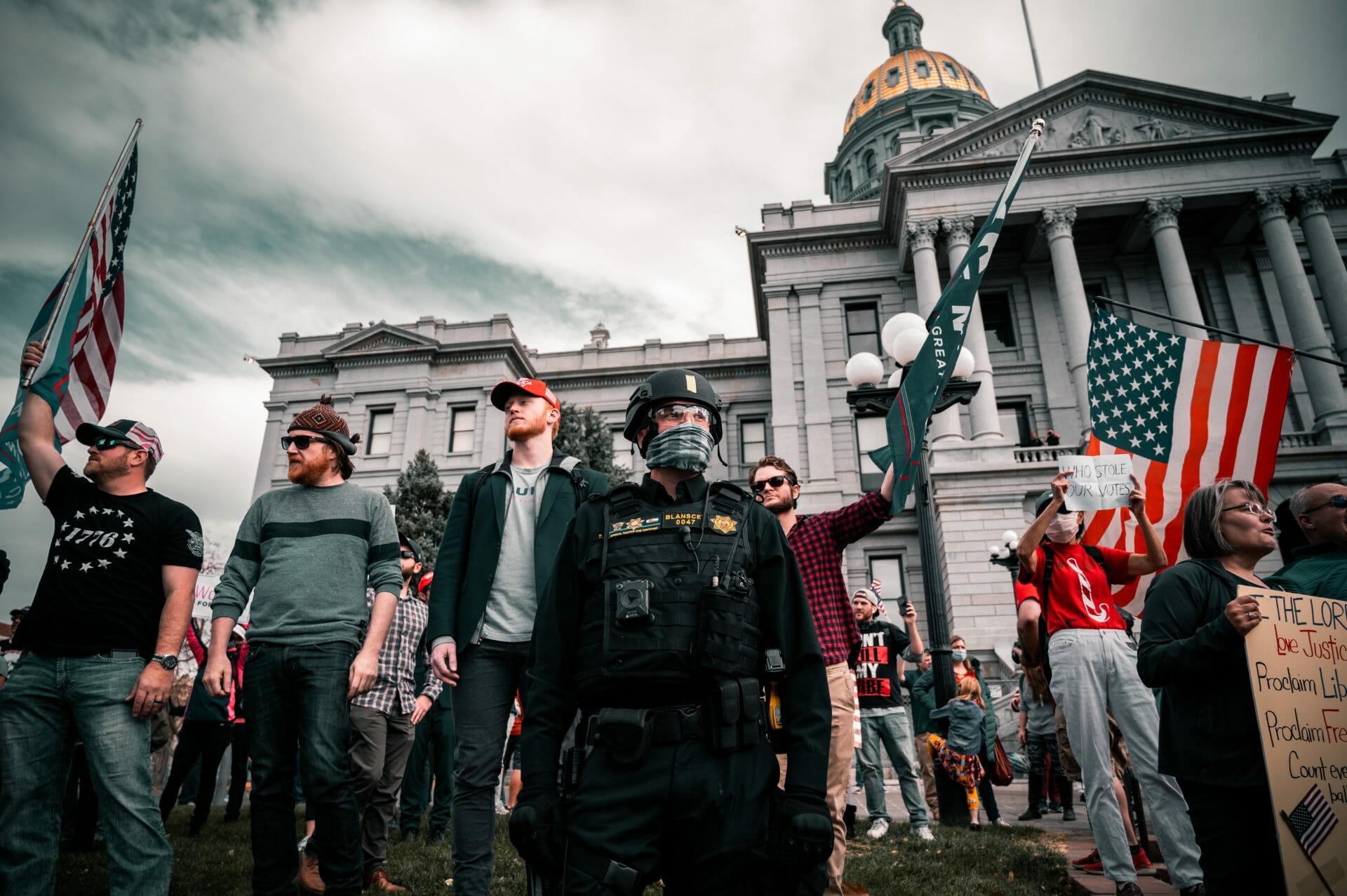
Photo by Colin Lloyd on Unsplash
A new year highlights an old challenge – conspiracy theories
December 30, 2021
One of the most important events of 2021 occurred in its first week, as insurrectionists stormed the Capitol. In the wake of the January 6 insurrection, increased attention has been paid to conspiracy theories in society more generally, but also in the institutions that I have spent my career serving – churches. According to a recent study by Lifeway, 49% of Protestant pastors frequently hear their congregants repeating conspiracy theories. That number does not surprise me in the least. Although conspiracy theories have been associated with the alt-right, in my experience pastoring an unabashedly progressive church, the left has its conspiracy theories too. But that begs the question, in institutions that purport to be about the truth, and tout Jesus’ teaching, “the truth will set you free,” why are churches such hotbeds for conspiracy theories?
Recent reporting from NPR makes the case that ambivalence by church leaders in addressing conspiracy theories in their congregations is partially to blame. That is undoubtedly true, but in my experience, such an account leaves out the fundamental way that churches often support conspiratorial thinking in how they engage with Scripture. Too often, churches have served as gateways to conspiratorial thinking, becoming the first in a long line of conspiracies that believers might adopt in their lifetime.
Growing up in Southern Baptist circles in the 1990s, I was accustomed to hearing endless speculation about how Scripture predicted current events. The foundational assumption was that the Bible was not just an ancient text, but one that had predictive power if read correctly. There was what the Bible said, which was plainly apparent to those who read it, but there was a deeper layer of understanding that was available to the initiated who heard sermons on Sunday morning. The Bible’s assertion that of Christ’s return “about that day and hour no one knows,” has not stopped churches from claiming that they are living in the end times. That line of thinking continued to the present day with those who said that Donald Trump was a modern-day Cyrus with a biblical mandate and that the COVID-19 vaccine was the mark of the beast. The contention is that those who understand how to read Scripture by attending to its hidden meanings can gain some sort of secret knowledge.
According to a recent study by Lifeway, 49% of Protestant pastors frequently hear their congregants repeating conspiracy theories. In institutions that purport to be about the truth, and tout Jesus’ teaching, “the truth will set you free,” why are churches such hotbeds for conspiracy theories?
Such secret knowledge has always been empowering, and the allure of it has been present in Christianity since its inception. Gnosticism, which is an umbrella term comprising many different beliefs, was united by its quest for gnosis or hidden knowledge. Elaine Pagels, a scholar of Gnosticism, points out its liberative elements, when she notes that Gnosticism “claimed to offer to every initiate direct access to God of which the priests and bishops themselves might be ignorant.”[i] Secret knowledge often undercuts hierarchy and can even be life-giving. That is certainly a part of my story. After being taught that there was only one correct way to read the Bible, realizing that there was a wide breadth of interpretations and contexts was like secret knowledge to me.
Those who purport to find secret knowledge experience themselves as being empowered, or to put it in terms that the faithful might be drawn to, they experience themselves as righteous. For the righteous, the calculus of how means justify ends changes so that nearly everything becomes permissible. We saw where this line of thinking leads clearly on January 6, when rioters mixed Christian slogans and symbols with an attempt to subvert our democracy, calling on Jesus’ name in prayer in the Senate chamber they came to occupy. By all accounts, they were normal people belonging to a slew of professions that were intoxicated by the hidden knowledge of Q. If your enemies are satanic pedophiles, then there are no limits to the actions the righteous might take to act against them.
For clergy like me, combating conspiracy theories means taking seriously the ways that churches can introduce someone to their first conspiracy theory through Scripture. If the Bible is full of hidden meanings and secret knowledge, then the world can be too. One of the ways that clergy can neutralize conspiracy theories is by emphasizing the breadth and depth of interpretations of Scripture and eschewing us vs. them, black and white thinking. If we approach Scripture as full of shades of gray, but ultimately intelligible, then the world becomes complex but intelligible as well. Such perspectives are what our democracy needs in this moment, and churches can provide an important perspective, but only if they engage in deep introspection about the ways that they have been complicit in leading believers to embrace conspiracy theories.
In a new year, it is tempting to turn the page and begin anew, but the challenge of conspiracy theories is just beginning to find its shape in congregations. As I turn the page to 2022, I am keeping my gaze firmly focused on January 6, 2021.
Rev. Dr. Michael Woolf is senior minister, Lake Street Church of Evanston, Illinois. He holds a Doctor of Theology degree from Harvard Divinity School and is currently a postdoctoral fellow at Harvard University.
The views expressed are those of the author and not necessarily those of American Baptist Home Mission Societies.
[i] Pagels, Elaine. The Gnostic Gospels. New York: Random House, 2004, p. 27.


